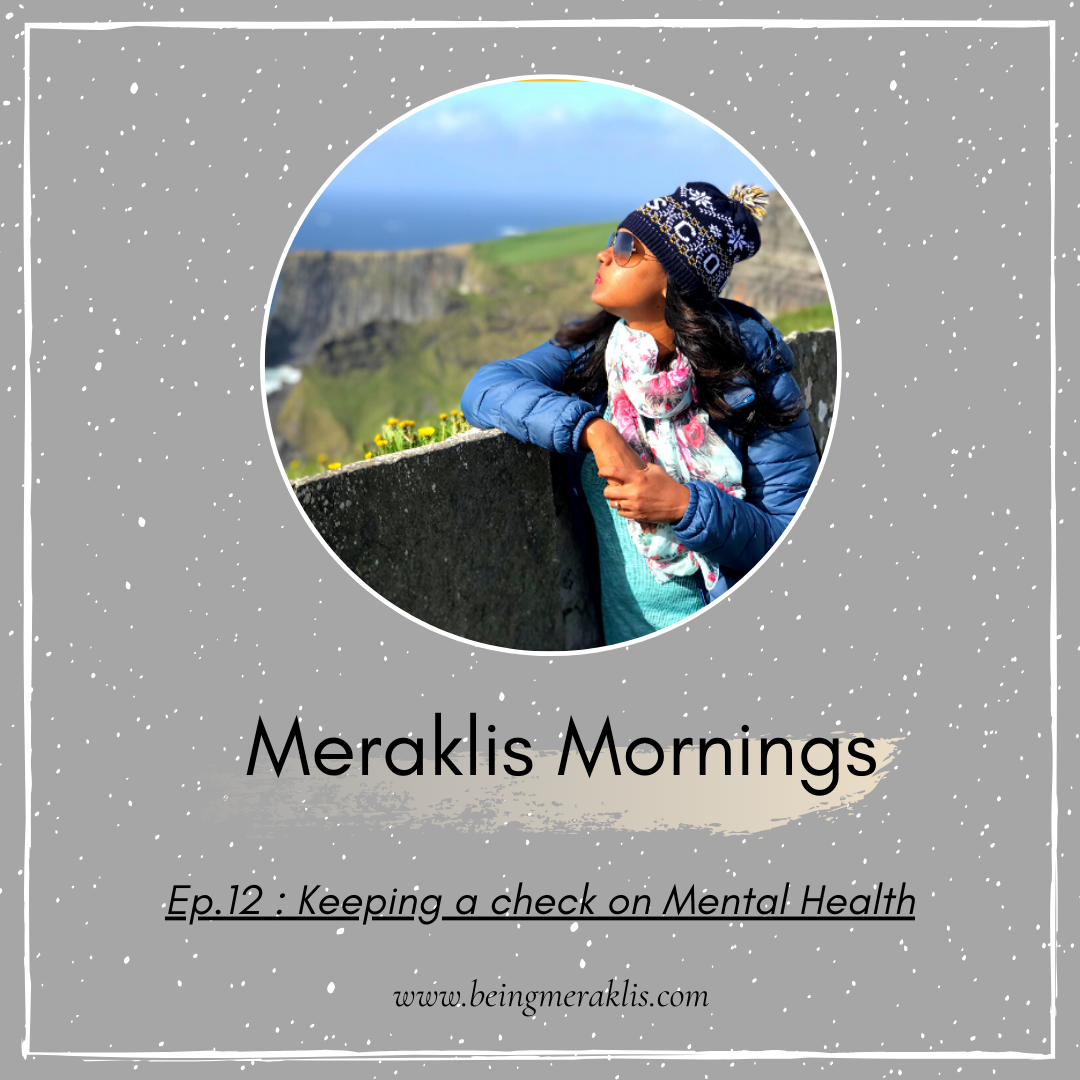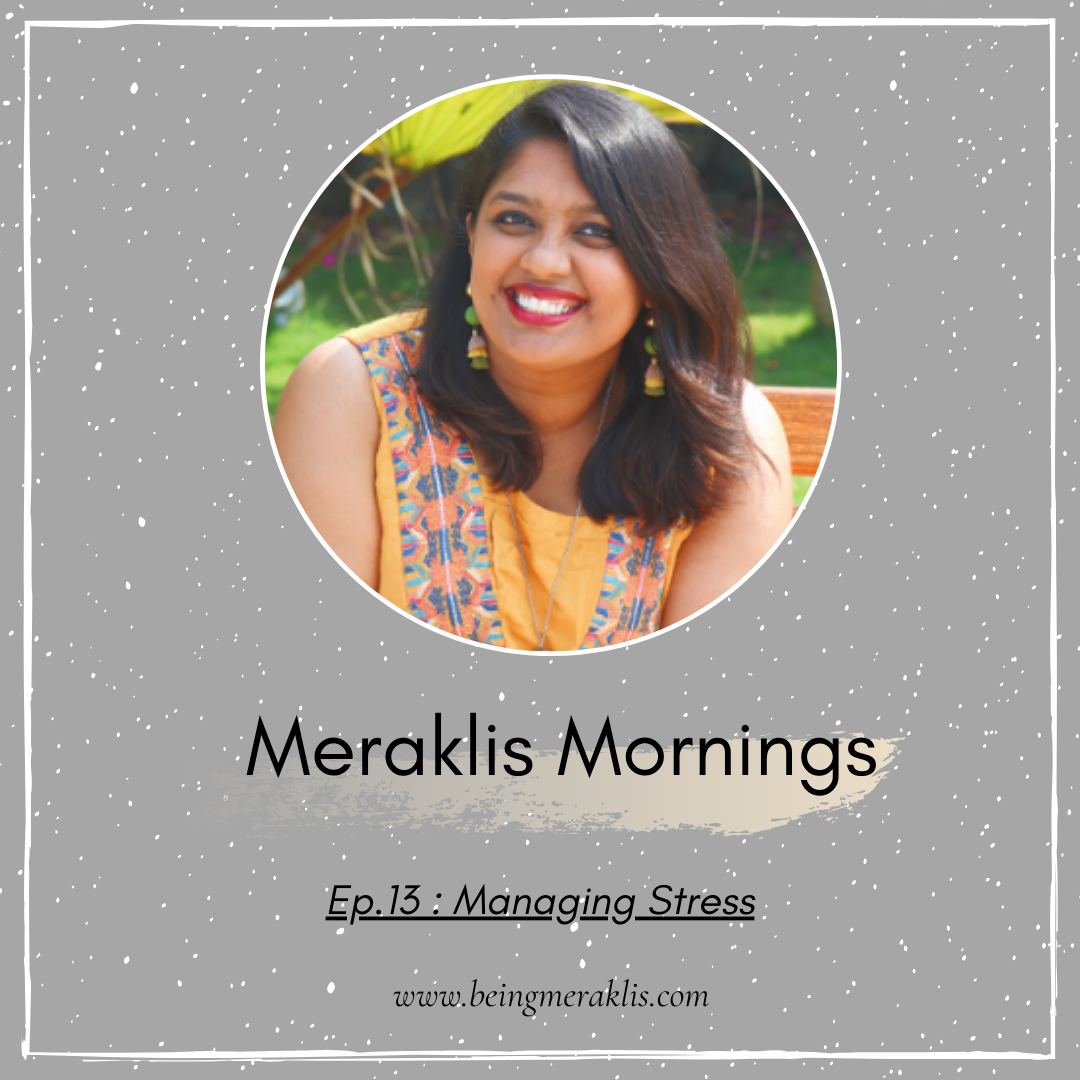
Ep 12 – Keeping a check on Mental Health
<

Why mental health is important
The week starting from 18th to 24th of May is celebrated as ‘Mental Health Awareness’ Week, so I thought of addressing the topics that is often ostracized or kept under wraps in our society even today.
Mental illnesses constitute one-sixth of all health-related disorders, from which India accounts for nearly 15% of the total burden of mental, neurological, and substance use disorders.
Moreover, the treatment gap is over 70 percent, which is defined as the prevalence of mental illnesses and the proportion of patients that get treated. And with the pandemic, the statistics reported quote a 20% jump in mental illness issues across the country.
But, we never really talk about it. Mental Health has always been a stigma, as if it could only mean going completely bonkers. But it is much more than that. In today’s fast-paced lives, mental balance is slowly being hijacked and is being replaced with constant stress and anxiety.
Read more on why it is important to keep a check on your mental health here.
What is Mental Health?
Mental Health is our emotional, psychological & social well-being. It is just as important as physical well-being to carry out our day to day functions. Excessive anxiety, stress, or depression can make it extremely difficult for us to even get out of bed on a daily basis.
Mental health cannot be identified with direct physical symptoms like a common cold, a ligament tear, or a spinal injury. Rather, there are subtle indicators in the physical aspects and minute changes in the emotional behaviours that on a regular day might just go unnoticed. Trivial behavioural changes like eating or sleeping too less or more, mood changes, lack of energy to go about with day-to-day activities, isolating self from peers and colleagues, inability to make decisions, or to follow through with it.
Mental Health does not get affected in a day. Unlike how you suddenly wake up with a fever, these symptoms grow subconsciously like a gradual downward spiral, until they become a way of life. It is like getting caught in quicksand, you do not realize you are getting into one and once you are inside, the way out becomes that much tougher.
How to keep a check on your mental health regularly?
1- Awareness : We spend a large part of our lives not knowing what triggers us, and when. We tend to go with the flow, for the reason that it is easy and requires the least resistance. But we need to stop that and take control of our life. This also means being aware of our thoughts and emotions and provide a way for the emotions to be processed rather than shutting them off.
2- Stay Connected : Connect with your inner self every day and if that’s not possible, try it once a week at least. As we are constantly evolving, we need to stay tuned with our inner fears and anxieties as we navigate through life. This could be through meditating, journaling, conversing with a mentor/ counsellor /loved one, or any other path you choose with whomever you trust.
3- Take Action : When you find yourself constantly conflicted or switching between one extreme mood to another, not having the energy to power through with all your commitments, feel yourself cut off from the rest of the world or feel overwhelmed by emotions of guilt or shame, do not sit on your hands expecting time to heal them. Take action. Introspect and find a resolution yourself when possible. If not, seek help. Remember, there is nothing wrong with seeking help.
And lastly, if you know a friend or a loved one going through a tough time, be kind.
Stay in touch, offer a helping hand in whatever way it is possible for you. Open up yourself and create space in your relationship for a judgment-free space so that they can open up, share, and unburden themselves from this sinking feeling. Create room for dialogue and offer unconditional support to bring them back to full strength.
Having seen the consequences of several close family members living lives untreated for long-drawn mental illnesses, I have realized that ignoring mental health has heavy consequences, not just on the person suffering duress, but also on the near and dear ones. So this Mental Health Awareness Week, let us pledge to prioritize our mental health and our loved ones and spread awareness.
Make your mental health a priority.
If you are curious to learn more about how you can combat internal battles and find that congruency in thoughts, feelings, and actions, tune in here to listen to our podcast episode with mental health experts.

